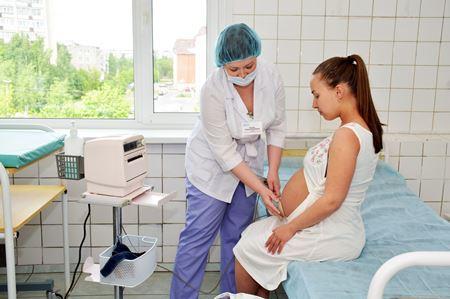The European Forum of National Nursing and Midwifery Associations (EFNNMA) is the voice of nursing and midwifery within WHO European Region.Working in partnership and strategically with WHO and other key stakeholders we aim to influence health policy, improve the quality of health services and the health of people across the 53 Member States of the Region. We are passionate advocates of the central and unique contribution that Nurses and Midwives make to individual and population health and well-being across Europe and are committed to ensuring both professions are supported to deliver excellence in their practice. As the nature of care changes we believe that strengthening and developing the nursing and midwifery workforce through the provision of lifelong learning and research delivers excellence in public health and people-centered healthcare.
International Youth Day 2019: Role of mentors in nursing and midwifery education

The WHO European Region celebrates International Youth Day on 12 August along with the rest of the world. The theme this year is “Transforming education”. It highlights the role of young people in transforming education into a powerful tool to achieve the 2030 Agenda for Sustainable Development.
With strong role models and mentors teaching tools of the trade and inspiring life-long devotion for the chosen profession, mentorship has become an important element of contemporary education. Nursing and midwifery are no exception.
Snezhana’s story: bringing new lives into the world
Snezhana is a midwife at the Severstal medical infirmary in Cherepovets, Russian Federation. Her story illustrates the impact that mentors and supervisors can have in shaping the future career of a young professional.
“My journey to becoming a midwife was not very straightforward, despite having an interest in medicine from an early age. When I was 9 years old, I spent 3 weeks in hospital, observing doctors and nurses – they were always in a rush, but found time to smile and say something nice to a little patient. I found that fascinating and would come home to read medical encyclopaedias and play doctor with my siblings and pets. However, following a recommendation from my parents, I started a university degree in history. And it took me 3 years to decide to leave that course of education to pursue my passion.
“I applied for a midwifery degree at the medical college without telling anyone, because I was afraid that my family would disapprove of my choices. In their opinion, a career in midwifery would bring me less professional attainment and income. But to me, midwifery was a very special field, because unlike other medical professions, its mission is not to treat illness, but to bring new life into the world. A close friend of our family worked as a midwife and she helped me understand the essence of the profession, for example how challenging it was sometimes to care for the well-being of the mother and child. I was mesmerized by her stories and noted the respect and gratitude that former patients and colleagues had for her.
“During my studies at the medical college I became more and more certain that midwifery was my calling,” says Snezhana.
My mentors taught me everything I know
“I will never forget the first day of the practical course I took before graduating from midwifery school. It was when I met my first mentor and role model – a midwife at Severstal medical infirmary. With her help, support and guidance, I delivered a healthy baby on my very first day on the job. That was when I understood how challenging but also gratifying the work of a midwife was. This was what I wanted to dedicate my life to.
“Thanks to the senior midwives who supervised me, the beginning of my professional development was not stressful, even though the work was challenging and exhausting at times. My mentors taught me everything I know, because practical skills and experience are such an essential addition to the theoretical knowledge received during my education. I was lucky to work with different midwife teams, which meant I had to adapt to the different temperaments and work styles of my supervisors, but it also meant that I could learn from the best traits of my different role models.
“Midwives were not my only mentors along the way – there were also doctors, obstetrician-gynaecologists, neonatologists, nurses in intensive care and anaesthesiologists, who I learned from. Thanks to their guidance, I was not terrified when I had to deliver a baby by myself for the first time. I felt confident that I had learned from the best,” Snezhana recollects.
Mentors to support young professionals
“In my opinion, the future of my profession is in the people that represent it. Midwifery, just like all the other clinical fields, needs bright young professionals. Normally, the first days on the job are the most challenging – when newcomers are faced with lack of practical skills and confidence. That would be a perfect moment for the young professional to receive support from a senior mentor, who knows and loves the profession. But I think it would be even better if this mentor was already present during studies at the medical college or university.
“If every student who is receiving important theoretical competencies from their studies also had a mentor assigned to them to show them the inner workings of the field, it would help keep talented young minds in the profession. And I think it would also ensure that when they start working they could confidently say, ‘I made the right choice!’” Snezhana concludes.
More personal stories on WHO EURO web site





